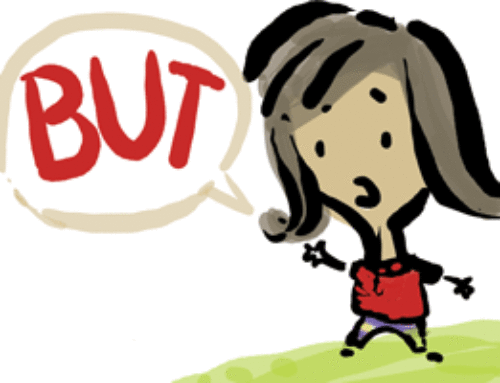Action and Acceptance
June 14, 2017
Categories: Acceptance,Action
Sometimes I struggle with the paradox of action and acceptance.
I know action is important. When I’m struggling with something, or want something to be different in my life, it’s important to DO SOMETHING. Taking concrete steps to change your behavior is one of the best ways to work toward getting the life you want.
But I also know that acceptance is important. Life isn’t perfect. There are things about my life and my situation that aren’t the way I want them to be, and I think to a certain extent, that will always be true. Also, sometimes bad things just happen. I can get angry and stomp my feet about the things in my life that aren’t as I want them to be, but what’s the point? Acceptance seems like a more peaceful option.
But there’s an inherent tension here. Action and acceptance seem like opposites. If I take action to change something in my life, by definition I am not accepting it as is. On the other hand, if I’m truly accepting something in my life, I may not feel a strong need to take action to change it. What’s the deal?
In research, when we run into findings that seem to conflict (like the tension between action and acceptance), it’s a clue that there might be a moderator variable somewhere in the mix. A moderator variable is an extra variable that changes how something performs. To give a silly example, the extent to which you prefer a big hamburger vs. a small steak might depend on the time since your last meal. The time since your last meal would be the moderator variable. If your last meal was a couple of hours ago, you might prefer the small steak. But if you haven’t eaten all day, you might like the big hamburger.
When you think about the paradox between action and acceptance, I think there’s an important moderator variable at play: the extent to which you have control over the situation at hand. The issue of control makes all the difference. This idea is also at the heart of Stoic Philosophy. The Stoics were known to say: “ta eph’hemin, ta ouk eph’hemin,” which means “what is up to us, what is not up to us.”
If you have control over the situation, action is the way to go. Get moving and make the change you want to see in yourself and the world. But if you don’t have control over the situation, practice acceptance. Forcing action in these situations is like banging your head against a brick wall.
Action and acceptance are both important, but it takes wisdom to know when to practice each. “What is up to us, what is not up to us” should be your mantra when deciding when to engage in action vs. acceptance.
Related Thoughts
No Comments
Leave A Comment

Subscribe To My Newsletter
Join my mailing list to receive the latest blog posts.
Receive my e-book “The Mental Health Toolkit” for free when you subscribe.






I really enjoyed reading this! You explain this concept in such a simple, holistic, and understandable way. It is now easier for me to reconcile the seemingly contradictory nature of action and acceptance. Thank you for sharing this!
Thanks for the encouragement Jonathan!
[…] The alternative is acceptance. When our reality is different from how we would like it to be, and we don’t have any power to change our situation, it might be time to practice acceptance. Acceptance aligns our thoughts, feelings, and behaviors with the reality of the situation we are facing. Acceptance involves a yielding. The fact is that in our lives, the reality of our situation doesn’t always line up with what we want. That’s just the way life goes. We need to have acceptance in our toolbox. […]
[…] I struggle with the tension between action and acceptance. On the one hand, I want to be disciplined and do the best I can in life. There are areas of my […]